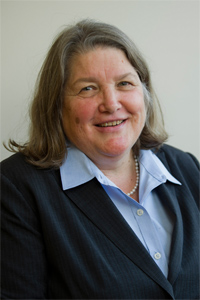State Medicaid Cuts Mean More Emergency Department Visits, Higher Costs for Safety-Net Hospital

According to a study released April 17 in the American Journal of Public Health, dental-related Emergency Department (ED) visits increased up to 14 percent following Massachusetts Medicaid cuts.
Findings are based on data from Boston Medical Center, an urban safety-net hospital in Boston’s South End.
In this retrospective study of existing data, researchers looked at dental-related ED visits and costs for three years before and two years after Massachusetts Health Care Reform, which reduced Medicaid coverage for adult dental care in July 2010. The study looked at adults 21 and older and ED use from July 1, 2007 to June 30, 2012.
“Dental-related ED visits increased two percent the first year and 14 percent the second year after Medicaid cuts,” said Dr. Judith Jones, one of the study’s authors and Director of the Center for Clinical Research at Boston University Henry M. Goldman School of Dental Medicine. “Percentage increases were highest among older adults, minorities, and persons receiving charity care, Medicaid, and Medicare.”
Related costs of care rose significantly, too. The average cost per patient per visit increased seven percent in 2010–2011 and 27 percent in 2011–2012.
The study found that most people using the ED for dental care reported caries (cavities) and soft tissue issues, conditions that are best treated in the dentist’s office.
In short, “Use of EDs for dental care points to an inappropriate use of resources and lack of continuity of dental care,” according to Jones.
“The findings highlight the need for primary dental care among the poor, racial/ethnic minorities, and adults of all ages, especially older adults.”
The idea for the study came from Dr. Pushkar Mehra, chair of the Department of Oral & Maxillofacial Surgery, who noted that, “after MassHealth Dental for adults was reduced, the residents in the BU/BMC Oral & Maxillofacial Surgery program were spending more time in the ED seeing patients with dental needs.”
Dean Jeffrey W. Hutter added, “I am proud of the leading role the Boston University Henry M. Goldman School of Dental Medicine is taking in identifying and addressing access to care issues in the state of Massachusetts through our research, in our Patient Treatment Centers, and at our Dental Health Center locations.”
Massachusetts Health Care Reform cut Medicaid spending on adult dental care by nearly 50 percent—from $139.4 million/year from July 1, 2007 to June 30, 2010, to $67.2 million/year from July 1, 2010 to June 30, 2012. In 2012, Medicaid partially restored dental care coverage for adults in Massachusetts. The study authors recommend further research to determine whether ED visits declined as a result.
Additional authors include Drs. Martha Neely, Lillelenny Santana Gutierrez, and Sharron Rich, MPH.
Submitted by GSDM Communications.